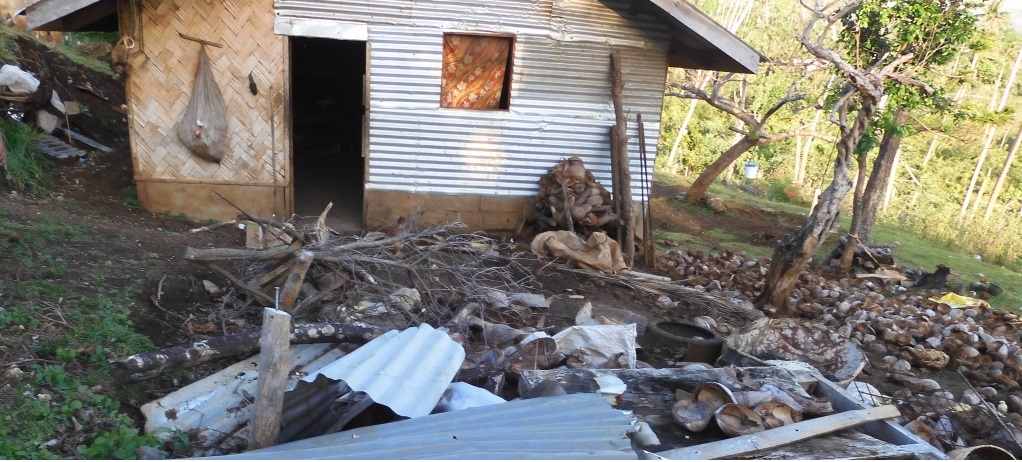Disaster Waste Management

Photo credit: PacWaste Plus
Pacific islands face many natural disasters such as cyclones, flooding, tsunamis, landslides, earthquakes, and marine submersion, and its phenomena are exacerbated - in power and frequency - by climate change.
Indeed, the IPCC report published on 9 August 9 2021 concludes that:
- globally, daily extreme precipitation events are expected to increase by about 7% for each +1°C of global warming;
- the proportion of intensity of tropical cyclones (categories 4-5) and the maximum wind speeds of the most intense tropical cyclones should increase;
- heat waves will be more frequent, hot seasons longer and cold seasons shorter. Extreme heat is expected to reach critical thresholds for agriculture and public health more often;
- sea levels could rise by one meter by 2100 and two meters by 2300, contributing to more frequent and severe flooding in low-lying areas and increased coastal erosion.
These natural disasters are a real challenge for all Pacific islands because of the negative environmental, health, economic and social impacts. In addition to the significant risks to property and people directly caused by disasters, these events can generate a significant amount of waste which in turn can impact on health, the economy and, or the environment. For example:
- Piles of waste on the roads can delay emergency lifesaving operations,
- Sharp waste such as broken glasses and deformed pieces of metals can cause serious injuries,
- Piles of waste can become breeding sites for mosquitoes and rats,
- Some hazardous wastes such as used oil or chemicals can spread and pollute the soil, rivers or the sea, groundwater, the atmosphere or even have health effects if not handled with care.
What does the SWAP project include to improve disaster waste management?
This thematic area is addressed by the SWAP project through two activities in the Solomon Islands and Vanuatu:
- Conduction of a scoping study to identify disposal facilities that could be rehabilitated and climate proofed; and
- Depending on the outcomes of the scoping study, rehabilitation and climate proofing work will be carried out on the identified disposal sites.
Note: A virtual workshop on Disaster Waste Management, jointly hosted by the SWAP project, the PacWaste Plus program, and the JPRISM2 project, is scheduled for December 8, 2022.
To know more
Further information about Disaster Waste Management, you can consult the document “FACTSHEET Managing Disaster Waste: A Guide for Communities” developed by the PacWaste Plus Programme.
For further information on the interest of countries to have a Disaster Waste Management Plan, you can consult the document REGIONAL FACTSHEET National Disaster Waste Management Plans: benefits of having Disaster Waste Management Plans and planning do Pacific Islands developed by the PacWaste Plus Programme.
JICA developed the Pacific Island Countries Regional Disaster Waste Management Guideline. The document is available on SPREP's Virtual Library.

